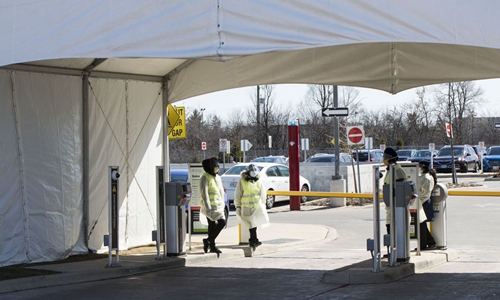Canadian Prime Minister Justin Trudeau announced a series of new measures on Monday afternoon to further contain the COVID-19 spread in Canada.
Speaking to reporters from Rideau Cottage in Ottawa where he is self-isolating, Trudeau said Canada is closing its borders to people who are not Canadian citizens, or permanent residents of Canada, but exceptions will be made for air crews, diplomats, immediate family members and US citizens.

He stressed that no one who is displaying symptoms will be permitted to board a flight to Canada, and that air operators will be required to complete a basic health assessment of every passenger based on guidelines from the Public Health Agency of Canada.
“I know this news will spark concern among Canadians travelling abroad. I want to assure you that our government will not leave you unsupported,” he said.
“To help asymptomatic Canadians to return home, our government will set up a support program for Canadians who need to get on a plane. Canadian travellers will be able to get financial assistance to help them with the costs of returning home or temporarily covering basic needs while they wait to come back to Canada,” he said.

Trudeau said only four Canadian airports — Toronto Pearson International Airport, Vancouver International Airport, Montreal Trudeau Airport and Calgary International Airport — will receive international flights.
However, he pointed out that domestic flights and flights from the United States, Mexico and the Caribbean will not be affected, and that the measures do not apply to trade or businesses.
Trudeau said COVID-19 has been spreading quickly across the world, and Canada is no exception. Therefore, Canada is taking “increasingly aggressive steps” to keep Canadians safe.
“I know that these measures are far-reaching. They are exceptional circumstances calling for exceptional measures,” he said.
More than 400 COVID-19 cases have been reported in Canada and there have been four deaths.
The Public Health Agency of Canada said that 13 percent of those cases required hospitalization.
Almost three-quarters of the cases were people who travelled outside of Canada recently, but public health officials said community transmission is happening more frequently.

